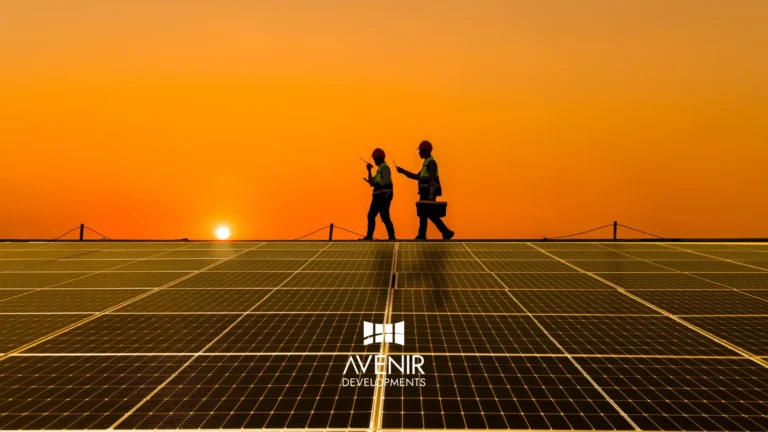Solar Power Policy in Pakistan is in flux, with a potential shift from net metering to gross metering.
Lahore heat can be brutal. The relentless sun beats down mercilessly, and this year, it feels like the electricity just can’t keep up. Rolling blackouts have become a daily occurrence, and the electricity bills, when the power is actually on, are enough to make you sweat even more. That’s why, like many Lahore residents, I invested in rooftop solar panels a few years ago. It’s been a game-changer – no more blackouts during the hottest part of the day, and a significant reduction in my electricity bills.
But lately, there’s been a growing sense of unease amongst us solar panel owners. Rumors have been swirling about changes to the government’s solar policy, and the news hasn’t been good. Apparently, our beloved net metering system might be on the chopping block, replaced by something called gross metering. As someone who’s benefited greatly from net metering, I knew I had to dig deeper and understand what this all meant. So, let’s dive into the world of solar power in Pakistan, the net metering vs gross metering debate, and how it all ties into the ongoing negotiations with the IMF.
Shining a Light on Solar Power in Pakistan
Before we delve into the current controversy, let’s get a basic understanding of solar power and its significance in Pakistan. Solar energy, as most of us know, harnesses the sun’s rays to generate electricity. It’s a clean, renewable source of energy, and in a country like Pakistan, blessed with abundant sunshine, it holds immense potential.
A Brief History of Solar Power in Pakistan:
The use of solar power in Pakistan has a relatively short history. While some pioneering efforts were made in the 1980s, it wasn’t until the early 2000s that we saw a significant push for solar adoption. This was driven by factors like rising energy costs, growing concern over environmental degradation, and government incentives like net metering.
The Importance of Net Metering:
Net metering is a billing system that allows solar panel owners to connect their systems to the national grid. Any excess electricity generated during the day is exported to the grid, and the consumer receives credits on their electricity bill. This credit can then be used to offset the cost of electricity consumed at night, when solar panels aren’t generating power. This system creates a win-win situation – consumers save money, and the strain on the national grid is reduced during peak daytime hours.
The Great Meter Debate – Net Metering vs Gross Metering
Now, let’s talk about the elephant in the room – the proposed shift from net metering to gross metering. Under gross metering, all the electricity generated by rooftop solar panels would be fed into the national grid. The homeowner would then purchase electricity from the grid at the retail rate, and any compensation for the solar energy fed back would be significantly lower than the retail price. Here’s a breakdown of the key differences:
| Feature | Net Metering | Gross Metering |
| Electricity Consumption | Offset by solar generation | Purchased entirely from the grid |
| Surplus Electricity | Credited on electricity bill | Sold to the grid at a lower rate |
| Financial Benefit | Lower electricity bills | Potentially higher electricity bills |
The Rationale Behind Gross Metering:
The government’s justification for considering gross metering seems to be primarily financial. They argue that the increasing adoption of net metering is putting a strain on power distribution companies (DISCOs). With more consumers generating their own electricity, DISCOs are selling less and consequently, earning less revenue. The government is also concerned about the impact of net metering on electricity tariffs.
Why the Shift is Concerning:
The prospect of gross metering has many solar panel owners, myself included, quite worried. Here’s why:
- Higher Electricity Bills: Since the compensation for solar energy fed back to the grid would be lower than the retail price, homeowners would likely see a significant increase in their electricity bills. This would negate the financial benefits of installing solar panels in the first place.
- Discouragement of Solar Adoption: A shift to gross metering would likely discourage people from investing in solar power. This would be a major setback for Pakistan’s clean energy goals.
- Unfair Treatment of Residential Consumers: Experts believe that gross metering would disproportionately benefit industrial users who could take advantage of daytime solar power generation. Residential consumers, on the other hand, would see their benefits significantly reduced.
The Role of the IMF:
The proposed shift to gross metering also appears to be influenced by the ongoing negotiations with the International Monetary Fund (IMF). The IMF is reportedly pressuring Pakistan to reduce electricity generation costs, and they see net metering as a contributing factor. However, critics argue that the government is focusing on the wrong target. The real culprit behind high electricity costs, they say, is the high cost of idle capacity payments made to power plant owners, regardless of whether they are generating electricity.
Shedding Light on Common Questions
With all this talk about net metering and gross metering, it’s natural to have some questions. Here are some of the most common ones I’ve encountered:
What are the benefits of solar power? Solar power offers a multitude of benefits. It’s clean, renewable, and helps reduce our dependence on fossil fuels. It can also lead to significant cost savings on electricity bills and reduce strain on the national grid during peak hours.
Is net metering still available in Pakistan? As of June 2024, net metering is still the prevailing policy in Pakistan. However, the government has signaled its intention to move towards gross metering, which is currently under debate.
Should I invest in solar panels now, given the uncertainty about net metering? This is a complicated question. The future of net metering is uncertain, but solar power still offers significant benefits. It’s important to weigh the potential cost savings against the upfront investment and consider your individual circumstances. Consulting with a solar energy expert can help you make an informed decision.
What can I do to make my voice heard on this issue? There are several things you can do. Stay informed by following credible news sources. Contact your local representatives and express your concerns. Consider joining advocacy groups that support solar energy.

Illuminating the Path Forward – Tips for Solar Power Users
Whether you’re a seasoned solar panel owner or just considering making the switch, here are some tips to help you navigate the current situation:
- Stay Informed: Keep yourself updated on the latest developments regarding the net metering vs gross metering debate. Reliable news sources and government websites are good places to start.
- Consider Your Options: If you’re planning to invest in solar panels, factor in the potential shift to gross metering. Analyze the long-term cost benefits and weigh them against the upfront investment.
- Optimize Your System: Ensure your solar panel system is properly sized and functioning efficiently to maximize your electricity generation and potential cost savings.
- Advocate for Solar Power: Let your voice be heard. Support organizations that promote solar energy and engage in discussions about the importance of net metering for Pakistan’s clean energy future.
A Brighter Future with Solar Power
The debate surrounding net metering and gross metering highlights the challenges and opportunities Pakistan faces in its transition towards clean energy. While the government’s financial concerns are valid, a shift to gross metering could have a detrimental impact on solar adoption and Pakistan’s clean energy goals.
There’s a need for a balanced approach that addresses the financial concerns of DISCOs without discouraging investment in solar power. Exploring alternative solutions like reviewing idle capacity payments and renegotiating expensive power purchase agreements with independent power producers could be more effective in reducing electricity generation costs.
The future of solar power in Pakistan remains uncertain, but one thing is clear: solar energy has the potential to revolutionize the country’s energy landscape. By promoting sustainable solutions and fostering a supportive policy environment, Pakistan can harness the power of the sun and illuminate a brighter future for its citizens.
Are you considering a sustainable and cost-effective solution for your home’s energy needs? Look no further than Avenir Developments! Our team of experts can guide you through the process of installing solar panels and ensure your home is powered by clean, renewable energy. Contact Avenir Developments today on WhatsApp or Call +923001101103 for a free consultation on Architecture, Interior Design & Construction Management, and let us help you build a brighter future for your home and the environment!







